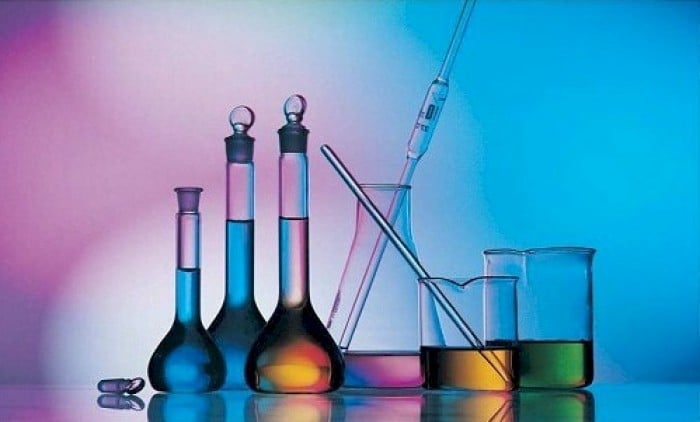
I admit that I try to eat “real food” as much as possible, but I have certain weaknesses. For one, Pop Tarts. I have no idea why, since they have no flavor besides “overly sweet”, and I fully recognize they’re stamped out in a factory somewhere. Whenever I get really tempted by the siren song of rectangular strawberry-flavored goodness, I just remember the laundry list of chemicals and (usually) reach for real fruit instead. Luckily for me, iO9 has a very entertaining (and shudder-inducing!) list of the “10 Crazy Science Experiments That Wound Up In Your Kitchen“.
I won’t spoil the whole list for you (trust me, you won’t look at Kellogg’s flakes the same way again), but here were my two favorites:
5. Artificial sweeteners are almost all the result of terribly unsafe experimental techniques.
When people up to scientific mischief tell you that they have ‘everything under control,’ go ahead and point out that almost all sweeteners were discovered by science experiments not only because people got bits of the experiments on their hands, but because they put them into their mouths. Saccharin, aspartame, and cyclamate were discovered when lab workers licked them by accident. Saccharin actually made it into a guy’s dinnertime rolls, which he had with his family. Aspartame got smeared over reports that a researcher tasted when he licked his fingers to turn pages. Cyclamate was discovered when a junior lab tech mistook the order to ‘test the chemicals’ for an order to ‘taste the chemicals.’
I have friends who have worked in labs, and I am hard pressed to think of anyone who would mistake “test” for “taste” and then ingest an unknown chemical. Props to the very, very, brave lab tech! Also, note to self: do not eat home-cooked meals at a chemist’s house.
3. Soft drinks are a two-hundred-year-long march of technology.
The first recorded use of the phrase ‘soda water’ was in 1798. It probably referred to naturally carbonated mineral water, but it got people thinking. In 1810 a process for making artificial mineral water was patented, followed by a contraption that held the water under pressure and dispensed it a bit at a time. Flavor wasn’t added for another forty years, when ginger ale was invented in Ireland. Root beer came in the 1870s, cola came in 1875, and ‘Coca-cola’ was invented in 1886. Bottles for soda and bottle caps for individual use came in the 1890s, and soda making exploded. The six-pack, called Hom-packs came in the twenties, and ushered in new flavors, such as “Bib-Label Lithiated Lemon-Lime Sodas,” later called 7 Up. Diet sodas came in the early 1950s, and aluminum cans in the late 1950s. The seventies, with their casual attitude, brought plastic bottles. Infamous New Coke sank in 1985, but it’s clear the soda evolution will never stop. Next, I predict walking soda bottles.
This almost makes soda sound natural! Yum….Lithiated lemon-lime….
So be sure to check out the full list, and let us know in the comments what your favorite bit of food science has created!
Via iO9

Tasting (and smelling) chemicals is actually pretty traditional, as part of characterizing them–a practice which has been in decline for a long time for obvious reasons. Derek Lowe (a pharma chemist) mentions having had older colleagues who did tasting–but only after the chemicals have been through rat (or other) animal toxicology testing.